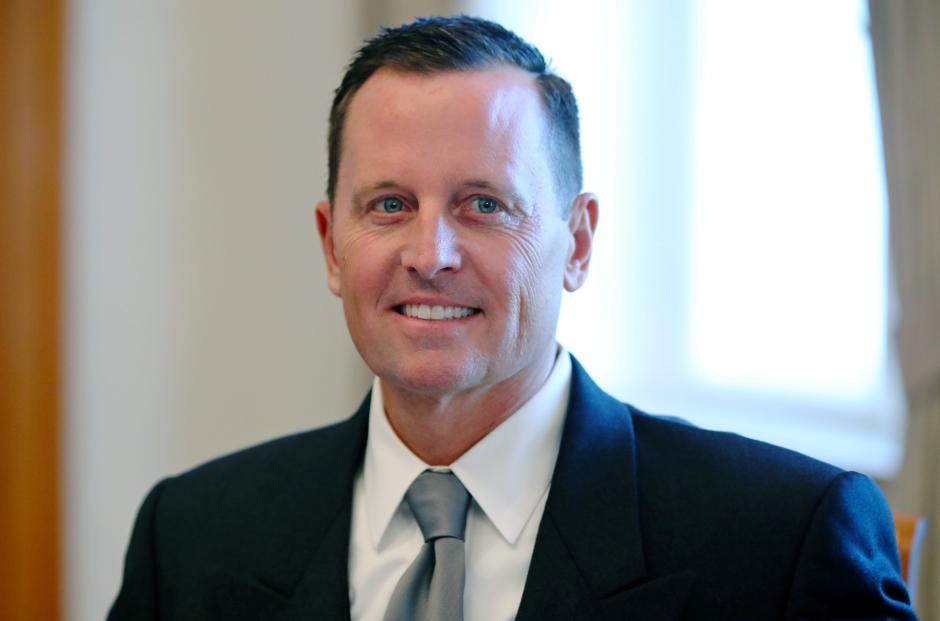Sept 20 (Reuters) – Carmaker Volkswagen AG rejected on Thursday a report suggesting it had decided against doing business in Iran after coming under pressure from Donald Trump’s ambassador to Germany, saying its position on the country had not changed.
U.S. sanctions against Iran, introduced by President Trump after his decision to pull the United States out of the Iran nuclear deal, have forced companies in Germany and across Europe to reconsider their investments there.
Ambassador Richard Grenell has appeared to take credit for this shift in a series of tweets and interviews over the past weeks, announcing the withdrawal of German blue chips like Siemens, BASF and now Volkswagen, to the surprise of the companies themselves.

A Bloomberg News story on Thursday, quoting Grenell, said he had led talks with Volkswagen over the past weeks, hammering out the final details of its new Iran stance on Tuesday.
However, a company source said there had been no talks with Grenell on Iran. And a VW spokesman told Reuters that the company’s position had not changed in recent weeks.
Asked about the VW response, U.S. embassy spokeswoman Christina Higgins said: “The U.S. ambassador has been speaking for quite some time to CEOs and industry leaders urging that they comply with U.S. sanctions.”
VW has no major investments in Iran, although it had been considering establishing a sales network for imported cars. Its Spanish division Seat announced last year that it had abandoned exploratory plans to enter Iran.
Grenell, a former U.S. spokesman at the United Nations and outspoken defender of Trump, has ruffled feathers since arriving in Germany in May.
Within hours of landing he sent a tweet warning German firms to halt all activities in Iran. Weeks later he drew fire from German politicians for telling right-wing website Breitbart News that he wanted to empower “other conservatives” in Europe.
His remarks on Thursday about Volkswagen’s Iran plans triggered more criticism.
Bijan Djir-Sarai, foreign policy spokesman for the business-friendly Free Democrats (FDP) in parliament, said it was ridiculous to think that German companies would make decisions based on pressure from the U.S. ambassador.
“The policies coming out of Washington are having an impact. But this has nothing to do with the ambassador,” he said, urging Grenell to be more careful in his choice of words.
“The German and European economies are strong. We don’t need to take orders as if we were an occupied zone.”
(Reporting by Noah Barkin, Jan Schwartz and Sabine Siebold; Editing by Mark Potter)

